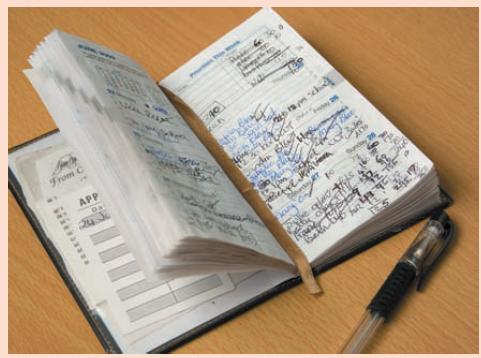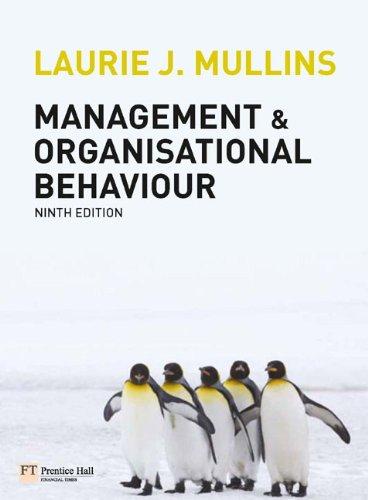You can tell a lot about a manager from the way they organise their diary. Time, more
Question:
You can tell a lot about a manager from the way they organise their diary. Time, more than capital or physical assets, is said to be our most precious resource. But how do different executives allocate this commodity? I encounter would-be leaders who have frantic agendas, each day packed with seemingly vital meetings. While a diary chock-a-block with appointments stretching far into the distance could be seen as a sign of success, it makes me suspect they may be just busy fools. By contrast, I am always hugely impressed and flattered when a genuine VIP makes himself available within 48 hours. We all want an element of structure to our existence but an overly rigid schedule is a sign of neurosis rather than achievement.
A true characteristic of a winner is an ability to prioritise. This is exemplified when it comes to meetings. If you have no space to see someone at short notice about something that really matters, then you have allowed the mundane to overwhelm you. How can you seize opportunities if you are always preoccupied with the day-to-day? My year is full of meetings, but perhaps only 20 make a major difference to my career or my wealth. And probably half of those are unexpected and need sudden attention, rather than items planned weeks in advance. I’m afraid certain bosses allow their assistants to run their lives. What typically happens is that we make contact and agree to a face-to-face discussion – and then propose our PAs confer about the time and place. But how are the PAs to know the subtle ranking of the meeting: how long, how urgent, what location? I must be in charge of my own timetable – no one else can really judge what should take precedence.
Accessibility makes a difference. Egomaniacs feel the need to surround themselves with armies of secretaries and underlings to demonstrate how powerful they are. Such petty displays are in reality signs of inner inadequacy. Communication has to be personal and fairly informal, even in the professional world. Admittedly, we could all spend years of our lives hooking up with time-wasters, mad people and cold-call salesmen pushing stuff we don’t want to buy. So knowing how to say ‘no thanks’ is important too. I admit that a week sitting in my office with no organised meetings or visits at all feels a lonely prospect. But quiet time to research, to consider, to reflect and plot strategy helps provide perspective and allows one to prepare. I am constantly astonished by managers in large organisations who obsessively attend internal meetings.
Committees almost by definition are a black hole into which time is sucked. Usually, they are planned months in advance, looming on the horizon on a Monday morning, primed to bore you to death. They are dominated by minutes, agendas, protocol and other matters of ultimate tedium. I rather admire those outfits that hold sessions where everyone has to stand up. It gives the event a real sense of urgency, I suspect. In these straitened times, such a stripped-down attitude feels rather appropriate – along with a genuinely flexible attitude to how you spend your day.
Discussion questions
1. Examine the article in terms of managerial efficiency and effectiveness. Which does the author seem to think is more important? Do you agree? Give reasons for your answer.
2. With reference to Stewart’s manager’s checklist, explain what lessons the article offers about the effective management of time.
Step by Step Answer:

Management And Organisational Behaviour
ISBN: 9780273728610
9th Edition
Authors: Laurie J. Mullins, Gill Christy





